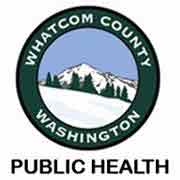 Already emerging in discussions about a possible Milk Makers Fest E. coli lawsuit is whether adequate safeguards were in place to protect Whatcom County first-graders from E. coli poisoning that many experts are hypothesizing was linked to the Fest’s animal exhibits and petting zoo. As the E. coli outbreak investigation continues, officials have identified 36 case patients, including sick children whose lab results are pending.
Already emerging in discussions about a possible Milk Makers Fest E. coli lawsuit is whether adequate safeguards were in place to protect Whatcom County first-graders from E. coli poisoning that many experts are hypothesizing was linked to the Fest’s animal exhibits and petting zoo. As the E. coli outbreak investigation continues, officials have identified 36 case patients, including sick children whose lab results are pending.
At least five of the children have been hospitalized and the elementary schools around Bellingham, Blaine, Ferndale, Lynden and other Whatcom County communities are trying to find out what went wrong. Meanwhile, some parents of sick first-graders are contacting E. coli lawyers to weigh legal options that best suit the interests of their families.
“We want everyone to know that all the children were required to wash their hands with anti-bacterial soap and water in addition to using hand sanitizers,” the Whatcom County Dairy Women said in a recent Facebook entry. “There are continuing comments here about hand sanitizers not killing E.coli. Soap and water AND hand alcohol based hand sanitizers were used at the Milk Makers Fest.”
E. coli O157:H7, toxic to humans, harbors in the stomachs of cows and other ruminant animals and is expelled in feces, where it can spread to humans in countless ways. It’s such a well-known problem at petting zoos, animal exhibits, county fairs and livestock shows that the National Association of State Public Veterinarians (NASPV) publishes a compendium of safety standards for operators to prevent outbreaks. How closely the standards were followed by Whatcom County school districts and Whatcom County Dairy Women could emerge as one of the legal consideration of this outbreak.
“Improper facility design and inadequate maintenance can increase risk for infection,” NASPV states in its latest compendium. “Temporary animal exhibits are particularly vulnerable to design flaws.”
Here’s what the compendium says about hand washing: “Washing hands with soap and water is the best way to reduce the number of germs on them. If soap and water are not available, use an alcohol-based hand sanitizer that contains at least 60% alcohol. Visible contamination and dirt should be removed before using hand sanitizers. Hand sanitizers are not effective when hands are visibly dirty. Even when hand sanitizer is used, visitors should always wash hands with soap and water as soon as possible after being in animal areas.”




